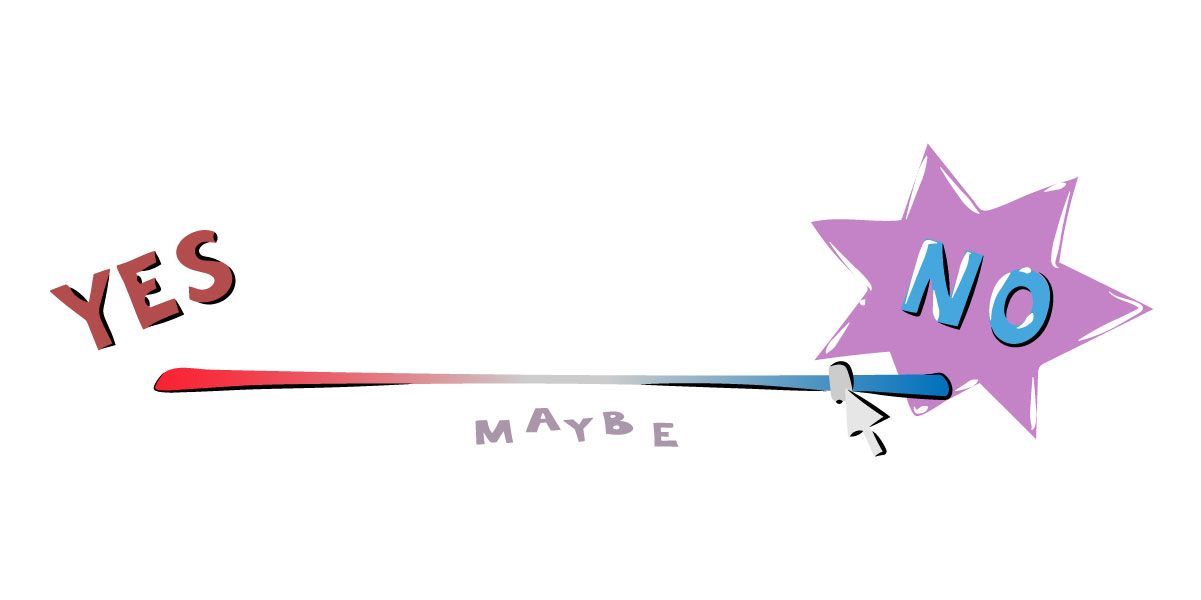Promises reduce your future choices
It’s the end of a meeting. The whiteboard overflows with tasks. The facilitator looks into the room, asking, “Who will take on adding monitoring to our search?”. The awkward silence ensues.
You know how to do it, and since none else raises their hand, you say, “I’ll do it”.
You just made a promise, and you just limited your future choices.

“Say no” by Ljubica Petkovic
When you promise to do something, you make the present more easy-going. You also set yourself up for working on a task that you would rather not do, maybe it is not enjoyable, or maybe there’s something more important to do.
I love books from people from Basecamp, the company. The books are clear, simple and short. When I read Shape up, and It doesn’t have to be crazy at work, I found this interesting idea:
Our default response to any idea that comes up should be: “Interesting. Maybe some day.” In other words, a very soft “no” that leaves all our options open. We don’t put it in a backlog. We give it space so we can learn whether it’s really important and what it might entail.
It’s too early to say “yes” or “no” on first contact. Even if we’re excited about it, we shouldn’t make a commitment that we don’t yet understand. We need to do work on the idea before it’s shaped enough to bet resources on. If we always say “yes” to incoming requests we’ll end up with a giant pile of work that only grows.
At Basecamp, they talk about promises in the context of project planning. They don’t promise their customers/colleagues to implement a feature because they would limit what they can work on next week, quarter, or year.
This idea translates to everyday life as well.
I am a people pleaser, and I often say I’ll do something to get out of an unpleasant conversation or to make others happy. And then I end up moving an acquaintance or writing extra documentation at a time when I’d rather work on my latest project or go for a run.
I am not suggesting that you tell “no” to all your colleagues, friends, and family and go and binge-watch videos. But the fewer things you promise, the less tied are your hands in the future. And if you won’t find anything more important to do, you can still do the task you didn’t promise and pleasantly surprise the person.